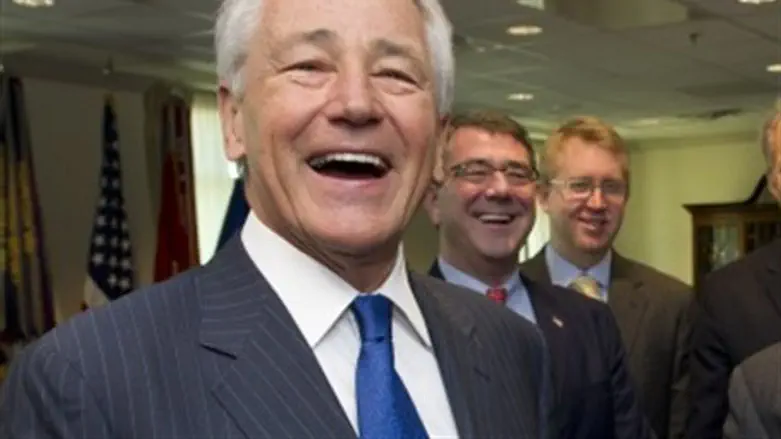
U.S. Defense Secretary Chuck Hagel telephoned his Egyptian counterpart on Saturday to voice concerns about a new Egyptian law that curbs protests and has prompted the arrest of a group of Egyptian girls and political activists, a spokesman said, according to Reuters.
Pentagon spokesman Carl Woog said that Hagel, in a call to Defense Minister Abdel Fattah al-Sisi, said the Egyptian government's approach to free speech would be seen as a demonstration of its "commitment to a non-violent, inclusive and sustainable democratic transition.”
The Egyptian protest law which was signed last week bans demonstrations without prior police approval, and has provoked an outcry among rights groups.
Since then, police have used tear gas and water cannon to disperse Islamist protesters supporting deposed President Mohammed Morsi, who was ousted on July 3.
A number of activists have been charged under the new law, including a leading political activist who was active in the 2011 uprising against former President Hosni Mubarak. On Thursday, 21 female supporters of Morsi were sentenced to 11 years in prison. Seven of them are under 18 years of age.
Woog said Hagel and al-Sisi also discussed the status of Egypt's new constitution and its plans to hold a referendum to vote on the document. The new constitution will bolster the military's hand in the government and ban religious parties, according to a draft completed on Saturday.
Hagel and al-Sisi also discussed terrorism, border and maritime security and regional issues such as Syria and Iran, Woog said, according to Reuters.
In October, the United States announced it would cut hundreds of millions of dollars in aid to Egypt to register displeasure over the military's pace of restoring democracy following Morsi’s ouster.
The U.S. provides $1.5 billion in annual aid to Egypt.
U.S. law forbids sending aid to countries where a democratic government was deposed by a military coup, but until now, the U.S. has never qualified Morsi’s ouster as a "coup" and has been cautious about doing so, choosing only to condemn the violence in the country.
